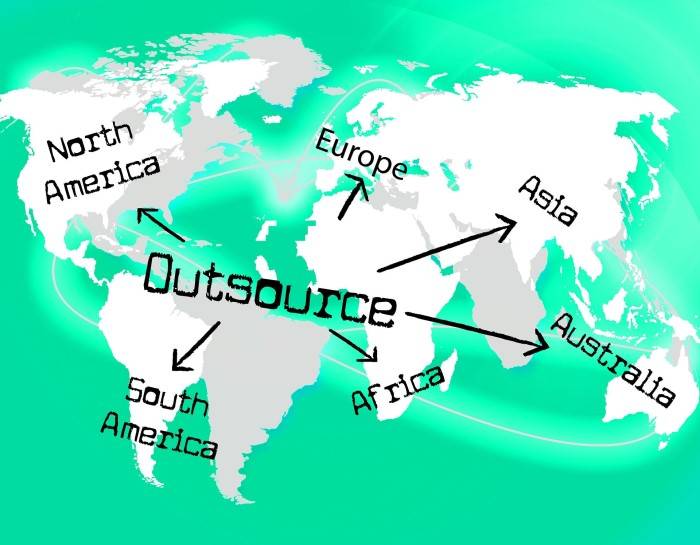What is outsourcing?

Outsourcing is the practice of contracting out a company's manufacturing, production, and/or services to another company or group outside the company.
Companies often outsource for three reasons: to avoid expensive labour costs, because local skilled workers are not available for certain tasks, or because the work is specialized and only needs to be done in one location. Outsourcing has also been effective when companies use it as an alternative strategy to rebuild their bottom line.
Outsourcing is a form of business management. You can find it in many industries: manufacturing, wholesale and retail trade, real estate, hospitality services, financial services, healthcare service organizations, telecommunications or engineering and construction. In fact, almost all industries outsource some part of their business.
Although outsourcing is often associated with outsourcing manufacturing, some companies outsource their entire business, and others outsource only part of their business. Outsourcing can be done through several mechanisms, including a captive entity, an independent agency or third-party service provider, franchising or direct contracting. Companies that outsource their manufacturing operations can use the economies of scale provided by a large production facility to reduce their costs.
Outsourcing has also been effective for companies that need specialized labour for one or two projects while not having enough skilled workers to work on the rest of their products. Outsourcing also allows companies to relocate their manufacturing facilities to other locations and take advantage of those very well-established areas' resources and workforce.
Large companies can sometimes outsource their excess or idle capacity to smaller companies that can then use that capacity for several projects. Some larger companies, such as Daimler-Benz, have outsourced just under 50% of their production to maintain high-quality standards for their products.
U.S. companies in the early 1980s first used outsourcing to take advantage of the nation's skilled labour pool. Since then, outsourcing has boomed across a wide spectrum of countries. Some have criticized outsourcing as going against the principle of free markets; others feel that outsourcing is actually a good way for big businesses to reduce their costs while preserving jobs at home and overseas.
In the early 1990s, companies began to outsource to countries with lower labour costs. Since then, the practice has increased and even become a large industry. As of 2008, estimates show that more than $1 trillion is spent on outsourcing services, and $148 billion is spent on offshoring products. The top ten destinations for outsourcing are India, The Philippines, Mexico, Hungary, Argentina, Bulgaria, Russian Federation, Ireland, Romania and Slovakia. At the same time, the top ten countries that receive outsourcing are the United States (the largest receiver), Ireland (which leads Europe as a destination), Germany and Australia.

AdXLabs | Outsourcing Made Easy
